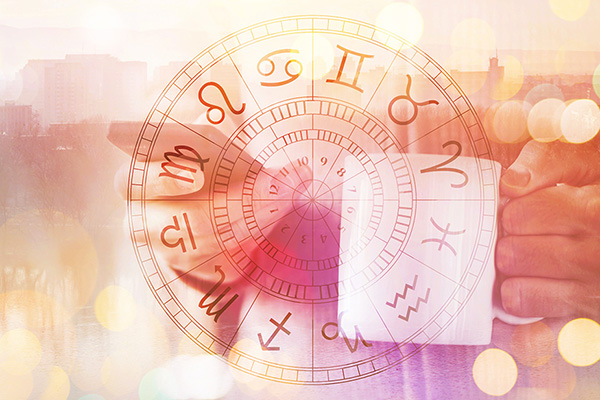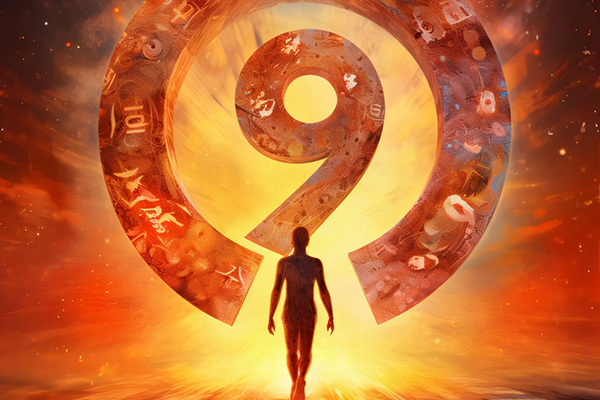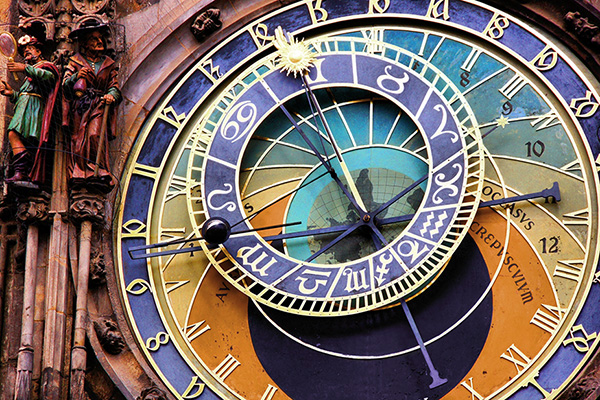Grasping the Impact of Free Will in Psychic Readings
 Free will is a prevalent topic in psychic sessions. Many individuals ponder the extent to which their lives are preordained versus how much they themselves influence their future, fate, and contentment.
Free will is a prevalent topic in psychic sessions. Many individuals ponder the extent to which their lives are preordained versus how much they themselves influence their future, fate, and contentment.
The reality is that our free will does not just impact our everyday experiences – it is fundamental to our existence as spiritual beings navigating a human journey. Free will is an unavoidable aspect of our reality. This is why it is a key element in nearly every spiritual, religious, and philosophical tradition.
From the principles of karma in Hinduism and Buddhism, through the moral obligations associated with divine guidance in Christianity and Judaism, to the ideals of virtue and tranquility in Stoicism and Taoism, the notion of free will has influenced our understanding of personal satisfaction, spirituality, and destiny since the beginning of human history.
Although interpretations of free will may diverge, its existence in our lives is irrefutable and affects how we perceive life – unless one subscribes to an atheistic perspective that dismisses any higher power or spiritual context to our existence. Nonetheless, even atheists must recognize that their choices and decisions play a significant role in shaping their lives.
Each of us possesses the inherent capability to mold our lives through our thoughts, beliefs, choices, and actions. However, this freedom comes with considerable responsibility: karma. The power to create our reality and influence our future sends ripples that impact not just our lives but also everything and everyone connected to us.
One significant inquiry concerning free will is the interplay between fate and personal autonomy. Numerous spiritual philosophies propose that our lives unfold according to a divine scheme or cosmic design. However, if everything is preordained, dictated by a higher power, and unfolds by divine will, why do possess the ability to make choices? What purpose does free will serve if our lives are already predetermined?
I have observed that even those who claim that everything is predestined and unchangeable tend to look before crossing the street ~ Stephen Hawking
I like to perceive free will as akin to the dynamic between a parent and a child. A wise parent permits the child to experience mistakes to facilitate learning and growth. Free will offers us similar chances to develop as spiritual beings. Certainly, some aspects of our destiny might be fixed – lessons to learn and obstacles to overcome – yet how we navigate these life encounters is where free will becomes relevant.
Just as a parent imposes limits yet gives the child a degree of freedom to explore, free will allows us the space to make decisions. The karma arising from our successes and failures, our wise choices and missteps, ensures that we progress in our personal and spiritual evolution. In essence, free will combined with karma equates to soul advancement!
Free Will And Karma
The notion of karma, tracing its origins from ancient Indian thought, encompasses the spiritual principle of “cause and effect,” which asserts that one’s actions influence their current existence and future results. This can be perceived in various ways, but a common interpretation is that karma functions within the realm of free will.
Free will represents our capability to make our own choices and determine our actions, independent of external influences or a higher power. It is the catalyst for future outcomes in our lives, while karma encompasses the results stemming from our free will. Our selections and actions establish the groundwork for our future experiences. Karma resembles planting seeds. The seeds (our actions) dictate the harvest (our future experiences). Thus, while we wield free will in choosing our thoughts and behaviors, the ramifications of those choices define our destiny.
Karma serves as a mechanism for both personal and spiritual development. It enables us to learn from our successes and failures. It operates like a cosmic equilibrium. Positive deeds result in beneficial outcomes, whereas negative actions yield adverse consequences. This implies that every action, regardless of magnitude, generates a ripple. This is akin to the “butterfly effect,” a metaphor that illustrates how minor variations within a system can lead to significant and unpredictable outcomes.
The butterfly concept originated from a weather forecasting experiment in the 1960s when meteorologist Edward Lorenz uncovered that a minuscule adjustment in the initial conditions of a weather simulation could cause drastically different weather phenomena elsewhere. The idea posits that a butterfly flapping its wings in Brazil might instigate a tornado in Texas. While this oversimplifies reality, it effectively conveys that seemingly trivial events can have extensive effects. It further emphasizes the interconnectedness of all things within the universe.
In my readings, I often find that clients may not always realize that their current circumstances and future possibilities stem from a series of free will decisions they have made over time.
Just as everyday actions like smiling at a stranger or skipping a workout can influence our lives, every thought and every choice we make contributes to our destiny and karmic journey. This is why authentic psychic readings usually focus on empowering individuals to take control of their decisions, instead of merely predicting a fate over which they have no influence.
Free will is perpetually at play in our lives, and even the smallest actions can result in significant changes and outcomes. A reputable and ethical psychic will consistently provide guidance on how to achieve this, particularly if your reading forecasts a potential outcome you wish to avoid.
Free will is not the liberty to act purely on whims, but the power to do that which one believes ought to be done, even in the face of overwhelming urges. There lies true freedom ~ George Macdonald
Free Will And Psychic Reading
Free will serves as both a privilege and a duty. Indeed, there may be some cosmic destiny or divine plan influencing our existence, but we also possess the ability to make choices that mold our future. When we acknowledge free will rather than viewing ourselves as victims of fate, we can progress through life with greater awareness and intent, ultimately realizing our true spiritual potential.
In psychic readings, free will holds significant importance as it delineates the parameters of what psychics can provide and how their clients can utilize that information. Psychics and mediums can access various energies and insights, but it is our choices that genuinely shape our lives. Comprehending the interaction of free will with karmic outcomes helps us appreciate that psychic readings are meant to empower us to take control of our life journeys, rather than simply resigning us to be captives of fate.
At the core of free will is your capacity to make autonomous decisions, even when receiving a reading or spiritual counsel. A psychic may outline possible outcomes, but those are merely potential paths based on the energy and circumstances present at the time of the reading.
Life is in a constant state of flux, and the future can change based on our decisions, thoughts, and actions, and those of others around us. That is why ethical psychics often emphasize the power you possess to alter your trajectory. For instance, if a reading indicates challenges in a relationship, you can choose to confront those issues or decide to move forward and take a different course in life.
Free will signifies that psychic readings do not adhere to determinism or fate. A psychic acts more like a guide, providing insights into your circumstances, but the outcome is always within your grasp. Readings are meant to illuminate what influences you and assist you in making informed decisions, not to dictate your future.
For anyone seeking guidance from psychics, grasping the importance of free will is an empowering asset. It reminds you that you are an active participant in crafting your reality, rather than passively awaiting a predetermined future. A conscientious psychic will consistently stress that the ultimate decision rests with you. This helps avoid dependence on the psychic for life choices and encourages you to take responsibility for your decisions. Rather than presenting outcomes as unavoidable, ethical psychics aim to offer insights and guidance into energies and possibilities, leaving it to you to act on this information in a way that resonates with you.
Free will is intrinsically connected to our growth and soul evolution. Every decision we make in the face of challenges provides an opportunity to learn, evolve, and refine our path. Psychic readings can act as a tool for self-reflection and development, guiding us to assume responsibility for our lives while heeding the spiritual insights we receive.
Thanks to free will, psychic readings are never mere rigid forecasts of a set future. They reflect potential directions, shaped by our current choices. They empower us to take action, embrace our decisions, and recognize that while the spirit realm may offer insights, we retain control over our destiny.
|
Mystic Shelley is a five-star psychic, Reiki healer, clairvoyant, and empathic reader. She provides honest insights about past, present, and future occurrences with the assistance of her trusted guides. Her readings span the realms of love, relationships, career, finances, and all aspects of life. Mystic Shelley was born with abilities that would eventually identify her as a gifted psychic, but she initially chose not to acknowledge them. In her 30s, a serendipitous encounter with a prominent psychic set her on a path that awakened her talents. Endowed with clairvoyance and empathy, her mentor helped her refine these gifts, elevating her skills to new heights. With experience came mastery, and she now boasts a growing roster of loyal clients who commend her work. Additionally, she actively supports other psychics in recognizing and embracing their abilities. If you seek direct and truthful insights, book a reading with Mystic Shelley now at PsychicAccess.com |
Recognizing the Impact of Free Will in Psychic Sessions
Psychic sessions have consistently captivated and intrigued individuals seeking direction and understanding in their lives. Whether one accepts the notion of psychic abilities or not, it is vital to comprehend the influence of free will within these readings. Free will signifies the capacity of individuals to make decisions and choices that shape their existence. It is an essential component of human life and plays a pivotal role in psychic readings.
Psychics, often referred to as clairvoyants or mediums, assert an ability to connect with the spiritual realm and gain insights into a person’s past, present, or future. They frequently offer guidance and predictions based on the information acquired. Nonetheless, it is crucial to acknowledge that psychic readings are not immutable and can be affected by the choices and actions of the individual receiving the reading.
A primary reason for considering free will in psychic readings is that it empowers individuals to craft their own destinies. While a psychic may share insights and forecasts, it is ultimately the recipient’s responsibility to determine how to act on that information. Free will enables individuals to take steps that can change their future prospects.
For instance, if a psychic foresees that a person may encounter financial difficulties shortly, that does not imply that such an outcome is unavoidable. The individual can explore proactive measures to enhance their financial circumstances, such as finding alternative income sources or implementing a more effective budgeting strategy. By exercising their free will, they can potentially transform the anticipated outcome and pave a new reality for themselves.
Another point to consider is that while psychic readings can provide critical insights and direction, they should not be the sole basis for significant life decisions. Free will allows individuals to gather information from multiple avenues, including psychic readings, and then make choices grounded in their own intuition and judgment.
It’s also essential to bear in mind that psychics are not infallible. They are also human and may have their limitations and prejudices. While numerous psychics sincerely believe in their capabilities and strive for accurate readings, there is a possibility of misinterpretation or miscommunication. Free will enables individuals to evaluate the information critically and make choices regarding how they will integrate it into their lives.
Moreover, free will acknowledges that individuals possess the power to evolve and change. Psychic readings may illuminate a person’s current situation, but they do not dictate their entire life narrative. Humans have the ability to learn, develop, and make choices that can modify their trajectories. Free will empowers individuals to seize control over their lives and craft their own futures.
In summary, recognizing the influence of free will in psychic readings is essential for anyone seeking guidance and understanding. Free will empowers individuals to make choices and decisions that can shape their lives, irrespective of any predictions or insights provided by psychics. It is vital to approach psychic readings with openness, critically assess the information received, and use one’s intuition and judgment to make informed choices. Ultimately, free will enables individuals to take charge of their destinies and create their own realities. Continue reading














